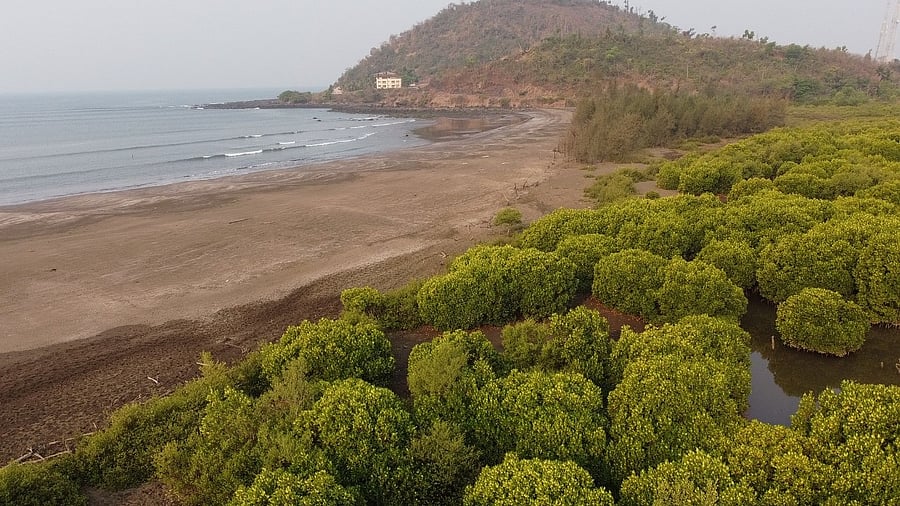
The ambitious project will also see coastal communities playing an active role in checking the flow of garbage, especially plastic, to the sea.
Credit: DH Photo
Bengaluru: Karnataka's World Bank-assisted project to curtail coastal erosion and build climate-resilient coastal communities is all set to take off with the government inviting bids for works in eight gram panchayats and four forest divisions.
The Karnataka-Strengthening Coastal Resilience and Economy (K-SHORE), an Rs 840-crore project aimed at checking the damage to coastal environments and building resilience among coastal communities highly vulnerable to climate change, is spread across seven years.
The ambitious project will also see coastal communities playing an active role in checking the flow of garbage, especially plastic, to the sea.
Following in-principle approval for the project, Forest Minister Eshwar B Khandre had ordered officials to expedite the works, including the preparation of a detailed project report. The World Bank will provide 70% of the cost as loans released in the form of reimbursement payments and the remaining 30% as grant.
Accordingly, the Karnataka Eco Restoration Society, an autonomous body under the state government, has begun inviting bids for works. A set of eight bids for material recovery facility (MRF) at eight gram panchayats seeks to prevent the flow of everyday garbage into the sea. To be built at a cost of Rs 17.64 crore, the MRFs in eight gram panchayats will together recover 67 tonnes of plastic per day.
Another set of bids for afforestation works worth Rs 23.63 crore focuses on nature-based solutions to protect the shoreline from erosion for which the western coast is highly vulnerable. The works in Mangaluru, Karwar, Sirsi and Honnavar forest divisions largely focus on assisted natural generation, mangrove plantation, aerodynamic model plants, coastal shelterbelts and myristica swamps.
The bids have been invited as per the World Bank's conditions. The government has to show that 30% of the annual outlay (roughly about Rs 120 crore for the first year) for the project is ready and get it approved from the Department of Economic Affairs (DEA) for the bank to release the funds.
Principal Chief Conservator of Forests (Head of Forest Force) Brijesh Kumar Dikshit said the mangrove and coastal shelterbelts make up a larger part of the programme aimed at checking erosion. "The shelter belt will have a major role in slowing down the winds and waves to reduce the impact on the shoreline. In the upstream, reeds along the rivers will be planted to tackle pollution," he said.
The officer said the bids were part of the readiness plan. "The project cost will be reimbursed by the bank after looking into the work. For instance, in the case of MRF, once the civil work is done, the bank will reimburse and fund the project further," he said.
A senior official, however, said the project's success will be dependent on capacity building in rural areas and ensuring a market for the recovered plastic materials. "Unlike civil infrastructure, these two elements require continuous efforts. Considering that multiple line departments are involved, a robust monitoring system is required so that the money borrowed on interest does not go waste," he added.
Besides the forest department, fisheries, urban development, rural development and panchayat raj departments are involved in the project. The Karnataka Biodiversity Board and the pollution control board are also part of the implementing agencies. The government plans community organisations to ensure the success of the project.
As per a report by the National Centre for Sustainable Coastal Management finalised last month, 28% of the 328.55 km coastline in Karnataka was exposed to high erosion while other parts were vulnerable to moderate to low erosion.